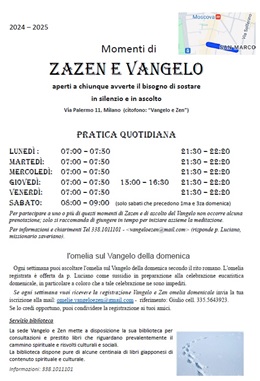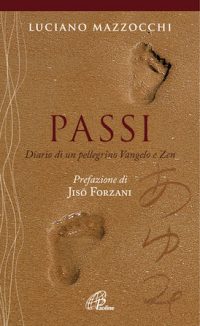The questions about the possibility of a Christian practice of zazen are more than in order especially after the letter of the Congregation for the Doctrine of Faith of 1989 On Some Aspects of Christian Meditation (L’Osservatore Romano, January 2, 1990). The letter rightly states that a Christian has a way to relate to God which is proper to each, nourished by his/her faith in Christ. Re or she cannot be satisfied with forms of prayer or of meditation which do not express his or her specifically Christian religious experience. In this sense, for instance, it would not be sufficient for a Christian just to practice even as high a form of religious experience as zazen, without participating in the celebration of the Lord’s Supper or in the other sacraments of the Church. But that of course is not the case here.
Again the letter of the Congregation for the Doctrine of the Faith warns against possible dangers in the practice of forms of prayer or of meditation received from other religions. This warning is also certainly grounded in prudence. Not every form of prayer, meditation or religious experience is evidently free from elements unsuitable to or even irreconcilable with Christian faith.
In our case the practice of zazen has been considered and experienced by many Christians with sound theological and spiritual preparation and found to be particularly suitable to the Christian faith and to Christian spiritual life. Of course, this supposes a distinction between zazen as a method or a way of spiritual life, and its historical concrete links with Buddhist doctrine. Such distinction has seemed possible, for example, to Fr. Rugo Enomiya Lassalle. This great missionary who spent most of his long life in Japan was a pioneer in the study and experience of the possibility of a Christian practice of zazen. [6]
In his book, Zen Meditation and Christian Prayer (1973), Fr. Enomiya Lassalle not only proposes to Christians the practice of zazen as a useful means of Christian prayer but comparing the teachings of Christian mystical writers to those of Zen masters finds striking similarities, and comes to the conclusion that zazen can be profitably practiced by Christians both as a preparation to Christian meditation, and al so as a form of Christian meditation at its highest level of “contemplation”.[7] Fr. Enomiya Lassalle in 1968 established the first Christian Zen Center in Japan, Shinmeikutsu, not far from Tokyo. It has remained a place of Christian experience of zazen and a symbol far Christian-Zen encounter.
In the way Fr. Enomiya Lassalle explains and presents the Christian practice of zazen there is no syncretism. Zazen is taken as a method to purify the mind from alI “objective” or discriminating thinking, opening the way to pure contemplation, without entailing specific Buddhist doctrines or practices which would be opposed to the Christian faith. In this way we suggest it may be practiced “before the Blessed Sacrament” as a form particularly suited to this devotion, and even capable of enriching its deep meaning of “communion” with Christ in his sacrifice or selfgiving to the Father far the world.
| Silent adoration « | » Experiment In Inculturation |





